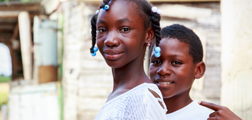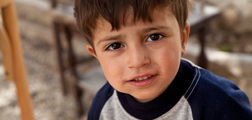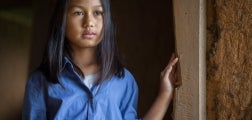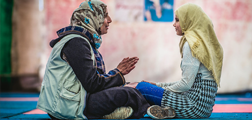About Refugees

Refugee children may feel relieved when they are resettled in the US. However, the difficulties they face do not end upon their arrival.
Many refugees, especially children, have experienced trauma related to war or persecution that may affect their mental and physical health long after the events have occurred. These traumatic events may occur while the refugees are in their country of origin, during displacement from their country of origin, or in the resettlement process here in the US.
The sections below provide information about Refugees and Refugee Trauma, including basic definitions, a description of refugee core stressors, and recommendations related to screening, assessment, and intervention. Information and resources are available for multiple audiences including mental health professionals, healthcare providers, school personnel, policy makers, and more. To browse resources for a particular audience, visit the NCTSN Resources page below.

Refugee children may feel relieved when they are resettled in the US. However, the difficulties they face do not end upon their arrival.

Events that refugees have experienced related to war or persecution can all be called traumatic events.

When assessing trauma and mental health symptoms in refugee children, providers should attend to engagement and cultural considerations as important first steps.

Refugee children and adolescents exhibit resilience despite a history of trauma. However, trauma can affect a refugee child’s emotional and behavioral development.

The following resources on Refugee Trauma were developed by the NCTSN. Information and resources are available for multiple audiences including mental health professionals, healthcare providers...

The following resources on Refugee Trauma were developed by external partners and organizations.